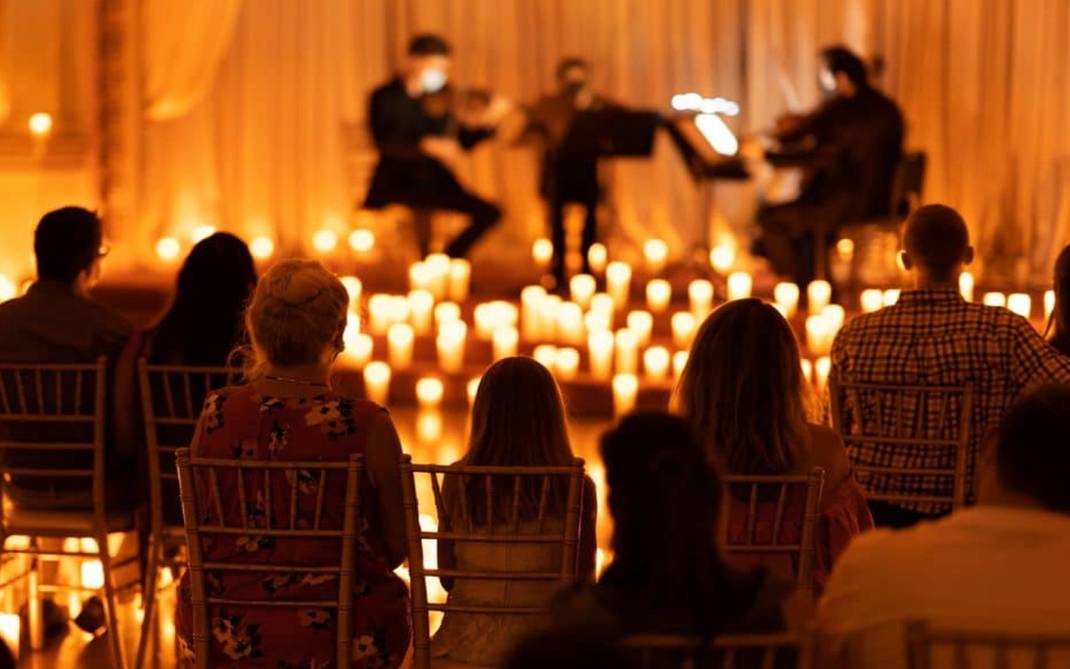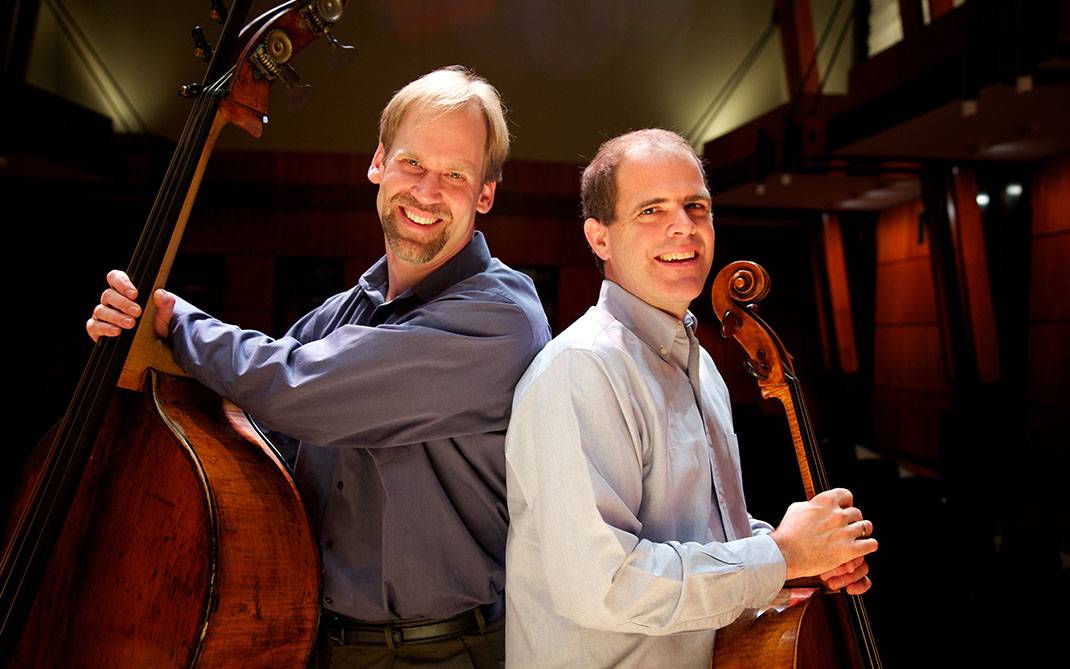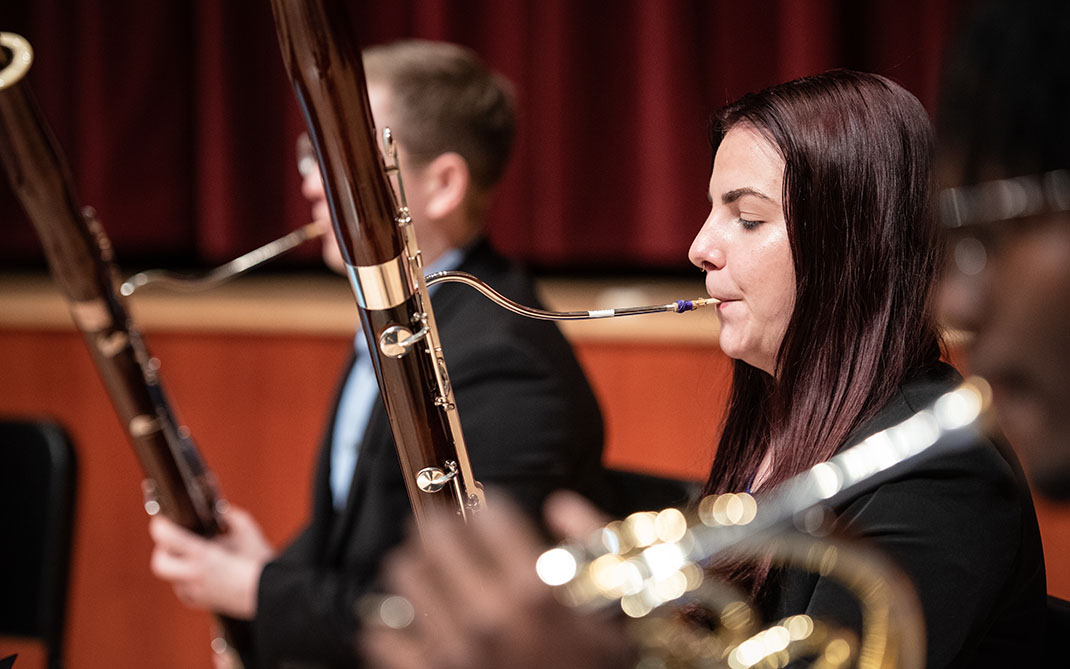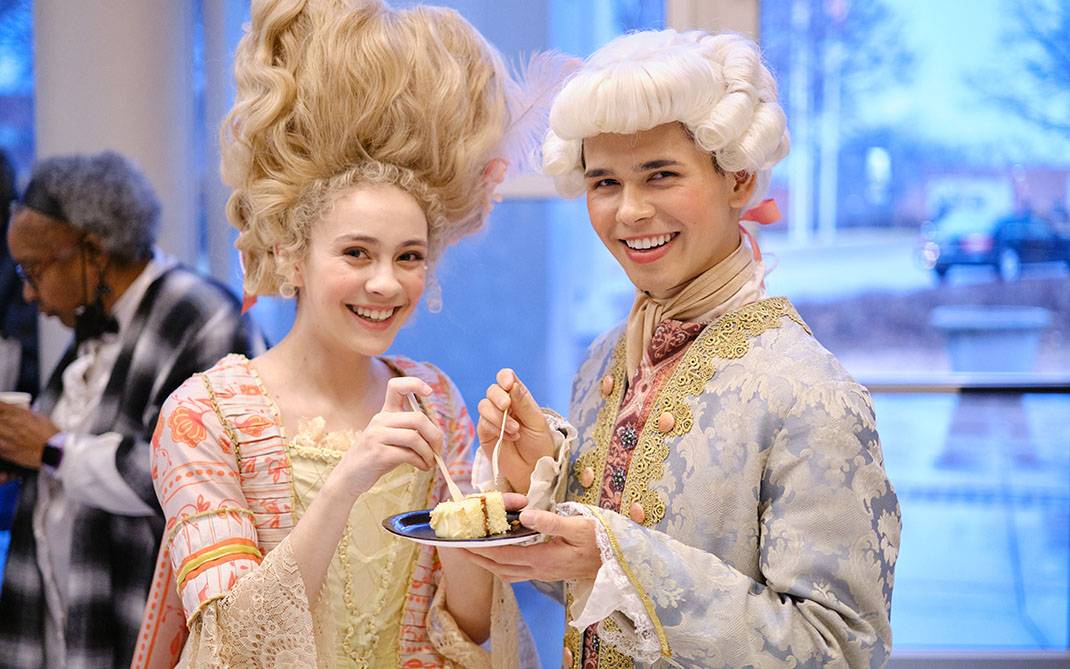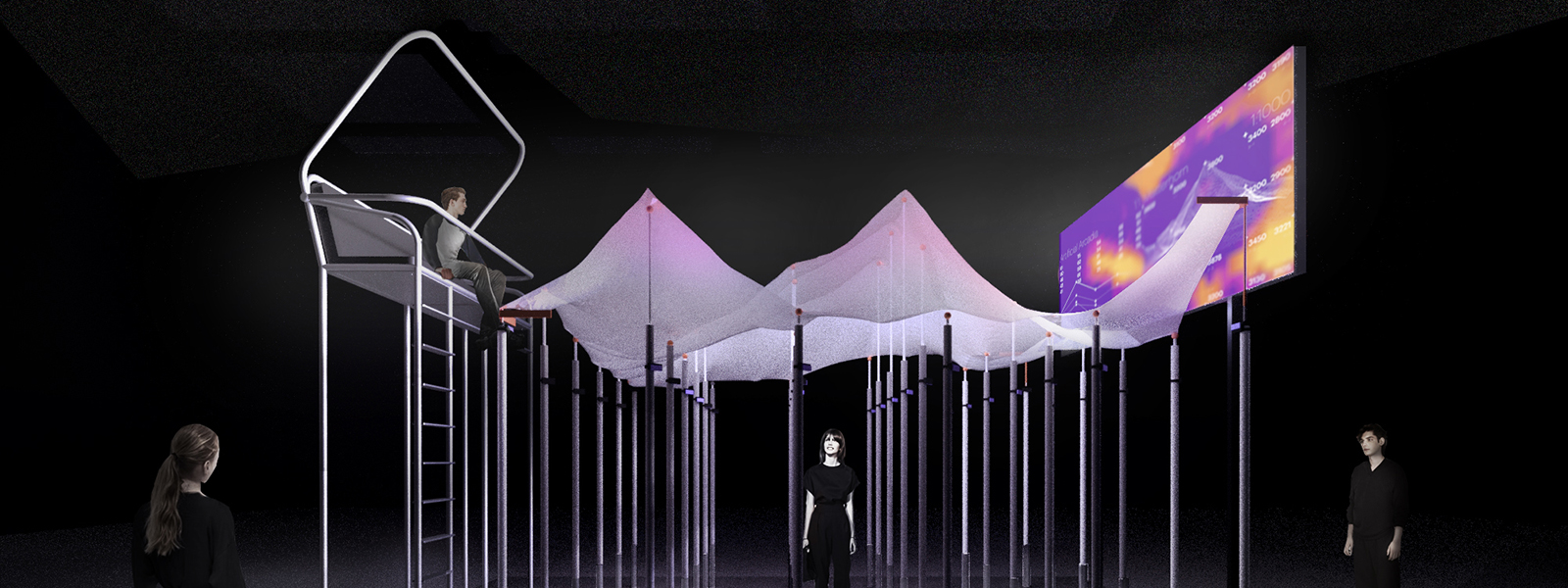Scenic Designers learn from industry best at 2019 Prague Quadrennial
Every four years, the city of Prague fills with the best theatre designers, artists and architects from around the world for the Prague Quadrennial of Performance Design and Space (PQ). Often referred to as the Olympics of performance design, participants from over 70 countries take part in exhibitions, festivals and educational programs that "serve as an international platform for exploring the practice, theory and education of contemporary performance design in the most encompassing terms."
This year, a group of nine UNCSA scenic designers attended the event that aims to honor, empower and celebrate the work of performance designers. We caught up with second year Scene Design graduate student Kevin McBee to learn more about his experience at the 2019 Prague Quadrennial.
What was your overall experience of attending the Prague Quadrennial?
The overarching theme for me during PQ was "density.” Density of culture. Density of art. Density of work. Density of humanity. We spent our time in Prague immersed in layer upon layer of visible (and invisible) histories overlaid with rich textures, commentary on creative and social work, and extended opportunities to explore a city that’s seen some of the best and worst the world has offered since the Romanesque era.
What was the most important thing you learned from the Quadrennial?
The magic of travel is real and strikes at the most unexpected times. Leave yourself open and available to heed the call and embrace the opportunities presented. Also, always close the windows when you leave your stunning Art Nouveau Airbnb in Old Town Prague. It will definitely rain.
Why is it important for UNCSA to continue participation in the event?
UNCSA offers, in my opinion, extremely high caliber work. Our students produce thought provoking, socially conscious and diverse art and experiences on a professional level—a level that exceeded the efforts of many schools present at PQ.
Our students produce thought provoking, socially conscious and diverse art and experiences on a professional level—a level that exceeded the efforts of many schools present at PQ.
Kevin McBee, graduate Scene Design student
We have an opportunity to share our thoughts and hard work on a global stage, and to create a recurring travel opportunity that is integral to student and world-citizen development. We also have the opportunity to forge bonds with other schools and creative professionals on a global scale that are hard to find, or wholly unavailable, in the traditional U.S. conference schedule.
What was your experience meeting artists and designers from around the world?
Whether you're sharing the view of a scale model in the exposition halls, the spaces of an experiential performance or the hundred year old table at the restaurant down the street—there is an attitude of openness and opportunity during the Quadrennial. PQ facilitates that attitude by encouraging shared experiences: an exploded view of the same feeling we get after seeing a theatrical or cinematic experience in a room full of people, and then wandering off to a coffee shop or a diner to discuss.
Barriers of language and culture begin to dissolve where needed, and are heightened where they increase awareness and understanding. It’s the best summer camp you can go to as a creative adult.
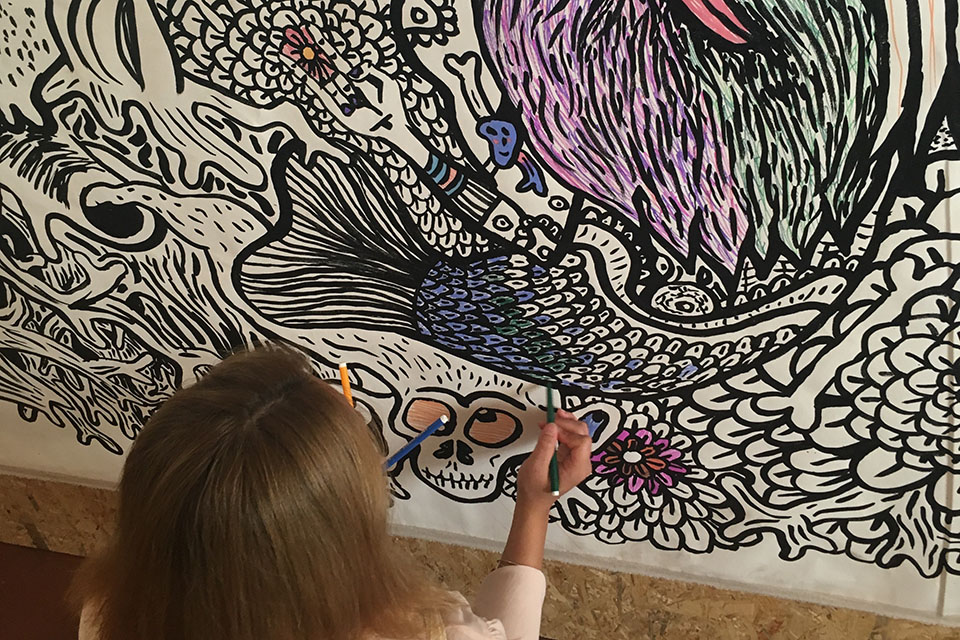
Students engaging with the “kids exhibition” area, one of the many interactive areas at the Prague Quadrennial. A labyrinth of plywood, scaffolding and exploratory spaces where individuals were encouraged to leave their mark using a variety of materials and media ranging from markers to legos in spaces that looked like everything from coloring books to clouds.
What is your advice to the next group of PQ participants?
Go prepared to sit and study. Take your sketchbooks and your paints. Find the cathedrals, castles, murals, corbels, brutalist blocks and forgotten spaces off the path of the city center. Take your walking shoes and skip the cabs—and maybe even the trains. Find your favorite restaurant in-between the sculpture atelier and the abandoned architecture school, and make friends with the folks who make your favorite sandwich there.
Go find people from other countries to wander around with you and get dinner, and pass those sketchbooks around and talk about what you love and you hate and the world you’re going to change. Then leave, letting it change you and, in turn, change the communities to which you return.
October 9, 2019

